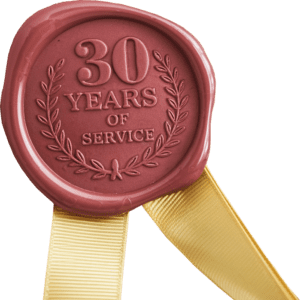Step 2: Choosing the right solution.
10 Steps to successful CRM implementation
Choosing the right CRM for your business can be a daunting task. In this article, we’ll cover the key considerations that you need to make when selecting your CRM. With so many CRM options in the market, choosing the best one that meets your business’s unique needs can be challenging.
For instance, if a business opts for a CRM solution that does not align with its type of business, it may not be able to track the relevant information, leading to ineffective decision-making. For example, a manufacturing company deciding to implement a CRM designed for retail businesses might result in the system not having the ability to track inventory or production schedules, which are crucial for manufacturing.
When selecting a CRM solution, it’s important to consider the specific requirements of your business and the industry you operate in. Going back to our example of the manufacturing company: this business may prioritize automation and integration with other systems, such as enterprise resource planning (ERP) or supply chain management (SCM) systems, to streamline production and logistics processes. On the other hand, a service-based business may prioritize scalability and customization to meet the diverse needs of its customers.
Consider the size and structure of your organisation, as well as the level of technical expertise of your employees. Some CRMs are geared towards small businesses, while others are designed for larger companies with more complex needs. Similarly, some CRM solutions are more user-friendly and require minimal technical expertise, while others require more advanced knowledge and training to fully use.
Another important factor is the level of integration and customization. Some CRMs are highly customizable, allowing businesses to tailor the system to their specific needs. This is important for companies that have unique processes or specific requirements. However, this can also make the implementation process more complex and time-consuming. Some CRM solutions are more out-of-the-box, with fewer customization options, but are typically easier to implement and use.
Another key feature to look for is the system’s scalability. As your business grows, you’ll need a CRM that can grow with you. Scalability is essential for businesses that expect to expand their customer base or add new products or services. A scalable solution will help to ensure that you’re able to manage and organise your customer interactions effectively, even as your business expands.
Cost. Carefully evaluate the total cost of ownership, including the initial investment and ongoing expenses such as support, maintenance and upgrades. Some CRMs are available as a cloud-based service, which can be a more cost-effective option for small businesses. Other CRM systems are available as an on-premises solution, which may be more suitable for larger organizations with more complex or regulatory needs.
Consider the level of support and maintenance offered by the CRM vendor or your consultant. A good vendor will provide a high level of technical support and help during the implementation process, as well as ongoing support and maintenance.
Last, it’s essential to evaluate the level of data security and privacy that the system offers. In today’s digital age, data security and privacy are of the utmost importance, and it’s essential that your CRM system is able to protect your customer and sales data from unauthorized access and breaches.
Choosing the right CRM solution for your business can be a complex process, but by taking the time to consider the specific requirements of your business and the industry you operate in, you can ensure that you select a system that meets your needs.


